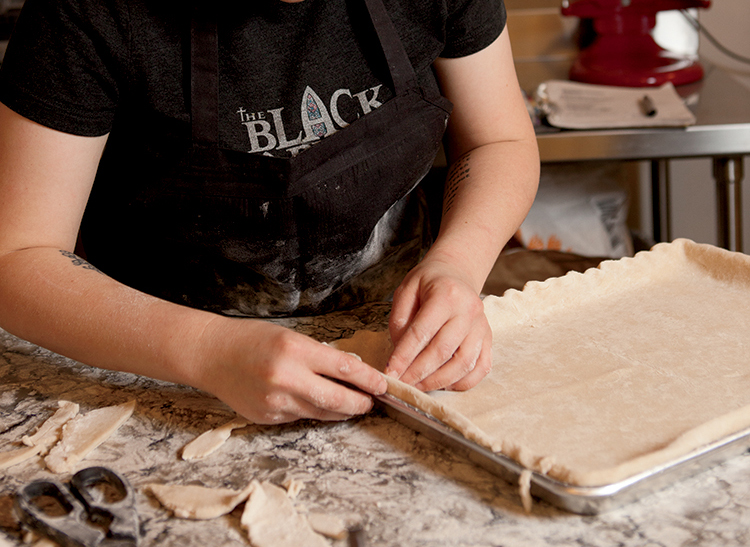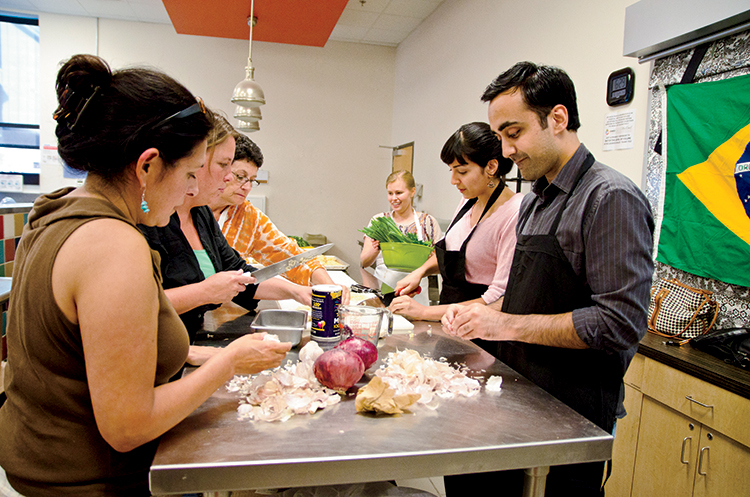Home > Tennessee > Tennessee Farm to Table > Tennessee Food Startups Know the Recipe for Success
Tennessee Food Startups Know the Recipe for Success
In partnership with: Tennessee Department of Agriculture

Original, tasty and made in Tennessee – food businesses have found a niche for their products at local farmers markets and other outlets throughout the state. Whether pursuing a family recipe or following a food trend, the state offers resources for food startups taking their product or service to market.
From Concept to Business
The Tennessee Department of Agriculture (TDA) presently receives more than 100 inquiries each month from entrepreneurs interested in turning their food idea into a business. Answering questions ranging from food safety procedures to permits, there is never a dull moment for Mike Brown, outreach coordinator for the Consumer and Industry Services Division at TDA.
“Most of the people trying to get into the food business want to start selling at local farmers markets,” says Brown, noting this outlet provides a great pilot audience for testing ideas before marketing on a larger scale. According to the USDA statistical service, in 2013, Tennessee had the highest percentage growth of any state for farmers markets, which has resulted in increased opportunities for startups to gain recognition.

At the same time, there is no shortage of innovative ideas being proposed to TDA like making beer out of rainwater, syrup from the shagbark hickory tree or a twist on the sun-dried tomato process. Lately, Brown has noticed a trend for anything raw or probiotic, such as probiotic-rich beverages like kombucha and kvass.
Producing foods like jellies and jams require only a domestic kitchen permit. However, a commercial kitchen space is required to produce foods with meat, eggs, milk or other ingredients that pose health risks if not properly handled and stored.
“The setting of food manufacturing is trending strongly toward commercial kitchen spaces,” says Brown, noting that the University of Tennessee has one, and they’re popping up across the state. An advantage of community kitchens, he says, is that they put people into business without having to buy a building or equipment. Instead, they can rent it.
Another advantage is that the commercial kitchens are inspected and meet food safety requirements, thus saving the business from that expense and challenge while also protecting the health of the consumer.

Inside a Community Kitchen
Housed at Casa Azafrán Community Center in Nashville, Mesa Komal opened its kitchen doors in April 2013 as a program of the nonprofit organization Conexión Américas. Working closely with TDA, Mesa Komal helps food entrepreneurs start their business by providing a cooking space and supplies at an affordable hourly or monthly rate.
“Mesa Komal is seen as a community kitchen, so all the chefs and business owners who rent the kitchen share the space,” says Martha Silva, economic integration director, Conexión Américas. “The kitchen can have five businesses running at the same time, so they have to openly communicate with each other.” In working together, everyone at the kitchen benefits from the sharing of knowledge and best practices.
The kitchen’s business connections are another asset. Recently, Belcourt Theatre in Nashville has started selling food products like empanadas, hummus and tamales from Mesa Komal’s entrepreneurs. In 2015, the kitchen plans to further these partnerships.
Additionally, Mesa Komal is launching a new culinary training course in Spanish starting March 2015, where students learn how to manage a catering business. “The purpose is to train or motivate food business owners to start their own business or learn better practices and skills,” Silva says.
Several homegrown brands have already found a home here including Hummus Chick, Chai Wallah Tea Company, Chubby Bunny Baby Food and SoberDough, and there is still room for new entrepreneurs, particularly small-scale manufacturers and caterers.
“We are always looking for new entrepreneurs to enroll, so if anyone wants to take a tour, even if it’s only an idea of a business, it’s fine,” Silva says. The kitchen doors are always open.



